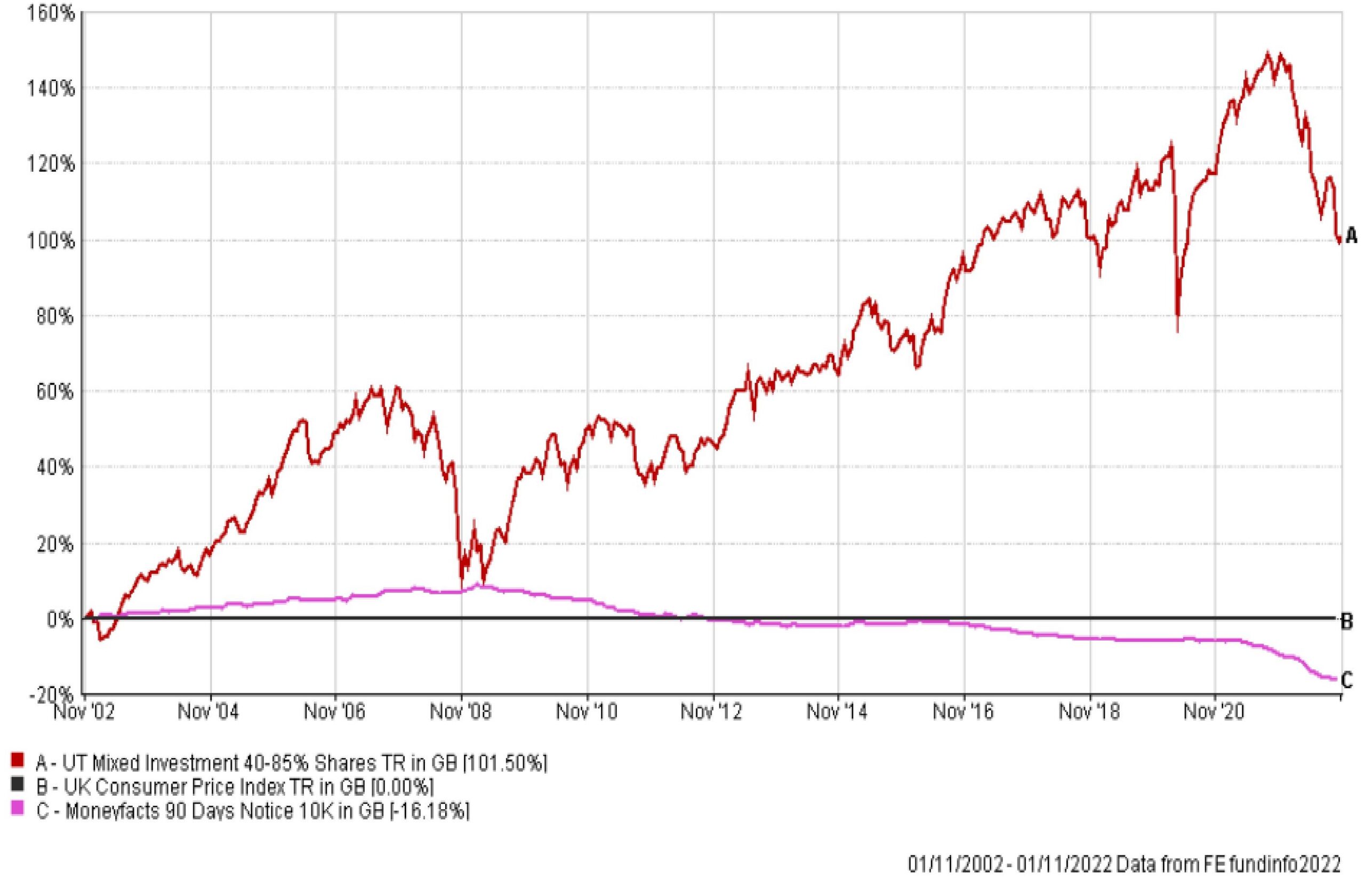MARKET UPDATE
It is fair to say that the six months since our last newsletter have seen some of the most challenging conditions for investment markets since the Great Financial Crisis of 2008. The continued increase in inflation and its stubborn resistance to the global rise in interest rates have caused falls in the value of most asset prices.
Amongst the worst affected areas have been technology companies, including some of the best known names. Since the start of 2022 we have seen the following drops in some of the largest technology organisations:
Meta (Facebook) -70.5%
Netflix -50.9%
Amazon -38.0%
Tesla -35.1%
Alphabet (Google) -33.5%
These five companies have fallen by an average of 45.6% this year, i.e. they have almost halved. Even Microsoft, almost regarded as a utility by some given all our dependence on their products, has fallen by over 29%. There are of course factors unique to each company which will weigh on investor sentiment, but one factor is common to all; inflation.
To appreciate why inflation can affect growth companies so badly, it is necessary to understand that the share price is effectively a reflection of the worth of future expected profits. If a company is expected to deliver £100 of profit next year then investors will price the shares accordingly. If however the profit is only £90 in real terms, because inflation is higher than expected, the value of the shares will fall. Where inflation is expected to continue for several years the write down will be even more aggressive.
More experienced investors may remember the technology crash of 2000, but we do not believe that the same issues apply here. 22 years ago many technology firms were loss making and investors were reliant on substantial growth for the companies to even survive. Now however, these companies generate profits on an almost unimaginable scale. Alphabet for example achieved profits of $76 billion in 2021, which is equivalent to $8,700,000 per hour.
BOND UPDATE
Global equities are not the only area to have seen a substantial downturn, and bonds have also fallen heavily in value. A bond is a loan to a company or government for a fixed term and usually with a fixed rate of interest. When interest rates rise, or are expected to rise, the capital value normally falls to reflect the fact that the interest rate originally secured is no longer as attractive. Selling the bond before it matures may therefore see a capital loss because the new buyer will not be willing to pay the full price for a return lower than that available elsewhere.
Rising rates around the world have seen bond values fall heavily, but this is particularly true in the UK where we can add political and economic turmoil following a rapid turnover of Prime Ministers and Chancellors. The now infamous ‘mini Budget’ caused chaos in financial markets when the then Chancellor set out a policy for extended borrowing to fund tax cuts, which he believed would in due course lead to sufficient growth to cover the costs. Economists, investors and the IMF all disagreed and this led to a fall in the value of sterling, particularly relative to the dollar, and to further increases in borrowing costs.
To put this into context, at the time of our last newsletter the cost to the UK government of borrowing for ten years was 1.9%. Rates had been generally rising in response to inflation and interest rate pressures, but a spike was seen in the lead up to and the immediate aftermath of the failed Budget when the cost rose to 4.4%. This led to a large fall in capital values with a ten year gilt falling by almost 20% in the months of August and September alone.
Intervention by the Bank of England to buy massive amounts of Gilts stabilised markets, and the reversal of the proposal to scrap the 45% tax bracket helped further. We are now likely to see tax rises and spending cuts, which are likely to be unpopular with the public but will have the approval of institutional lenders. We await the official announcements in approximately two weeks’ time, but in the meantime the market has reacted positively and the interest rate for 10 year gilts has now fallen back to 3.4% (as of 1 November).
NOT ALL GLOOM
It is hard to remain positive against the background of falling portfolio values and constantly negative media reporting. However it is worth remembering that a fall only becomes a loss if an investment is sold, and it is part of the normal cycle of investing that falls are seen from time to time. Client portfolios are constructed in a way which ensures a sell down of assets in the short term should not be necessary, and we are able to wait for stability to return.
To give a sense of context, the chart below shows the returns of the average ‘managed’ fund which contains between 40% and 85% in shares, with the rest normally being in bonds. This is shown relative to a 90 days’ notice cash account, and both are shown on an inflation adjusted basis, i.e. after deducting inflation, over the past 20 years. It can be seen that cash has fallen by over 16% net of inflation whereas the managed fund has more than doubled investors’ money. Whilst past performance is not necessarily a guide to future returns, we do believe that ‘real assets’ will continue to outperform cash in the years ahead.
 POSTAL STRIKES
POSTAL STRIKES
Although the latest strikes have been delayed due to legal challenges, please be aware that postal strikes are likely to resume in due course. Our experience has been that during the period of industrial action post can take several days longer to reach us, not just the 24 hours of the actual stoppage.
We would therefore encourage clients to contact us via email where possible during this time, and using our reception@michaelambrose.co.uk address will ensure that emails are dealt with promptly.
FINAL NOTE
The purpose of this newsletter is to provide a commentary for general interest purposes. It is not intended to provide recommendations, or to provide a deep technical analysis. If you would like more detailed information, or have any questions regarding your individual portfolio, then please speak to your usual adviser. Thank you.

